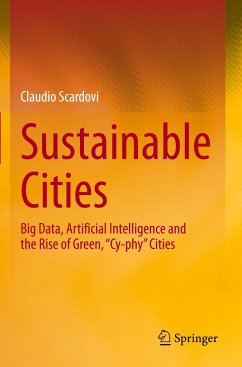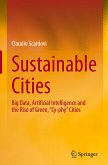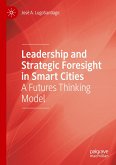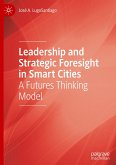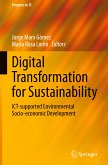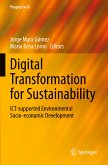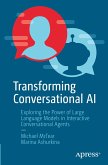Global cities are facing an almost unprecedented challenge of change. As they re-emerge from the Covid 19 pandemic and get ready to face climate change and other, potentially existential threats, they need to look for new ways to support wealth and wellbeing creation - leveraging Big Data and AI and suing them into their physical reality and to become greener, more inclusive and resilient, hence sustainable.
This book describes how new digital technologies could be used to design digital and physical twins of cities that are able to feed into each other to optimize their working and ability to create new wealth and wellbeing. The book also describes how to increase cities' social and economic resilience during crisis time and addressing their almost fatal weaknesses - as it became all too obvious during the recent COVID 19 crisis. Also, the book presents a framework for a critical discussion of the concept of "smart-city", suggesting its development into a "cyber" and "meta" one- meaning, not only digital systems can allow physical ones (e.g. cities, citizens, households and companies) to become "smarter", but also the vice versa is true, as off line data and real life behaviours can support the optimization and development of virtual brains as a sum of big data and artificial intelligence apps all sitting "over the cloud".
An analysis of the fundamental dynamics of this emerging "info-telligence" economy, and of the potential role of big digital players like Amazon, Google and Facebook is then paving the way to discuss a few strategic forays on how traditional sectors such as financial services, real estate, TMT or health could also evolve, leveraging Big Data and AI in a cyber-physical integrated setting. Finally, a number of thought provoking use cases that could be designed around individuals, and to improve the success and the resilience of households and companies living and working in urban areas are discussed, as an example of one of the most exciting future markets to come: the one of global, sustainable cities
This book describes how new digital technologies could be used to design digital and physical twins of cities that are able to feed into each other to optimize their working and ability to create new wealth and wellbeing. The book also describes how to increase cities' social and economic resilience during crisis time and addressing their almost fatal weaknesses - as it became all too obvious during the recent COVID 19 crisis. Also, the book presents a framework for a critical discussion of the concept of "smart-city", suggesting its development into a "cyber" and "meta" one- meaning, not only digital systems can allow physical ones (e.g. cities, citizens, households and companies) to become "smarter", but also the vice versa is true, as off line data and real life behaviours can support the optimization and development of virtual brains as a sum of big data and artificial intelligence apps all sitting "over the cloud".
An analysis of the fundamental dynamics of this emerging "info-telligence" economy, and of the potential role of big digital players like Amazon, Google and Facebook is then paving the way to discuss a few strategic forays on how traditional sectors such as financial services, real estate, TMT or health could also evolve, leveraging Big Data and AI in a cyber-physical integrated setting. Finally, a number of thought provoking use cases that could be designed around individuals, and to improve the success and the resilience of households and companies living and working in urban areas are discussed, as an example of one of the most exciting future markets to come: the one of global, sustainable cities

